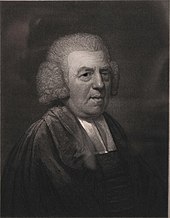The Boarding of the Betty in Great Detail
Earlier this year the Cowper & Newton Museum in England posted an article headlined “John Newton, Tide Surveyor, and the boarding of the Betty.”
The authors are Darren White and Glen Huntley, who collaborate as Bygone Liverpool.
They begin:
Through newspapers White and Huntley were able to confirm that the ship Betty had come from Virginia, and that it carried tobacco. They discuss Newton’s duties [see what I did there] as a Customs officer, and how the River Mersey looked to arriving ships.
American sources provided information on the Betty’s captain, Thomas Brereton. British sources illuminated the ship’s several owners.
Then it turns out the Betty was made into a privateer in 1761. The authors even found a diagram showing how it had sailed out of Chesapeake Bay that September in a protective convoy of tobacco ships.
The article traces the Betty to its demise off the coast of Ireland in 1763, with a final conflict between different groups fighting for the spoils of the wreck.
It’s a long read that goes in many directions, but it’s a wonderful example of what one can learn just by pulling on a few threads of historical evidence.
In 1764 Newton was ordained within the Anglican church, leaving the civil service and becoming curate for Olney. He’s best known as the author of the hymn “Amazing Grace” and the rueful pamphlet Thoughts on the Slave Trade.
The authors are Darren White and Glen Huntley, who collaborate as Bygone Liverpool.
They begin:
When the Cowper & Newton Museum shared with us a photograph of a small paper exhibit from its collection—a boarding docket from John Newton’s time as a tide surveyor (1755–1764) in Liverpool—we didn’t think we would be able to unlock its secrets because there wasn’t that much information listed in it.But they then proceed to assemble a long, detailed, and richly illustrated examination of the circumstances behind that document.
Through newspapers White and Huntley were able to confirm that the ship Betty had come from Virginia, and that it carried tobacco. They discuss Newton’s duties [see what I did there] as a Customs officer, and how the River Mersey looked to arriving ships.
American sources provided information on the Betty’s captain, Thomas Brereton. British sources illuminated the ship’s several owners.
Then it turns out the Betty was made into a privateer in 1761. The authors even found a diagram showing how it had sailed out of Chesapeake Bay that September in a protective convoy of tobacco ships.
The article traces the Betty to its demise off the coast of Ireland in 1763, with a final conflict between different groups fighting for the spoils of the wreck.
It’s a long read that goes in many directions, but it’s a wonderful example of what one can learn just by pulling on a few threads of historical evidence.
In 1764 Newton was ordained within the Anglican church, leaving the civil service and becoming curate for Olney. He’s best known as the author of the hymn “Amazing Grace” and the rueful pamphlet Thoughts on the Slave Trade.


No comments:
Post a Comment